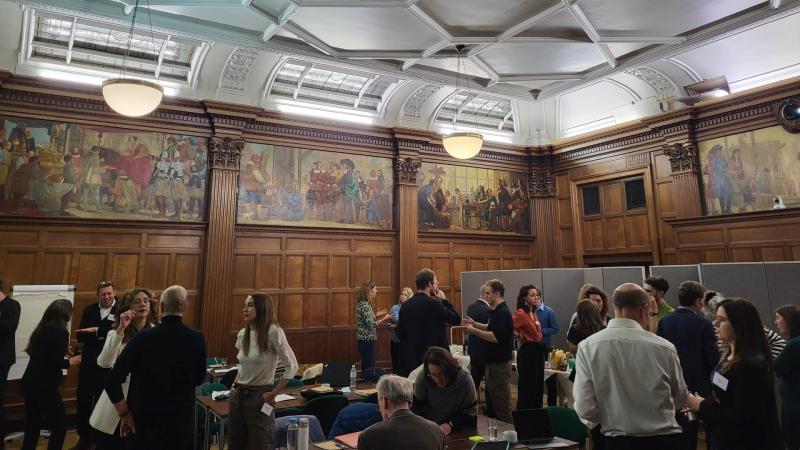The inaugural Fossil Fuel Non-Proliferation Treaty Symposium, which took place in Fyvie Hall at Westminster’s Regent Campus from 28-29 September 2022, explored what an international mechanism to phase out fossil fuels in a just and orderly way could look like.

The Symposium was convened by the Fossil Fuel Non-Proliferation Treaty campaign, the Rapid Transition Alliance, the University of Sussex, and the Westminster Law and Theory Lab research centre. Participants included a combination of academics, lawyers and civil society experts.
The discussion focused on pathways towards the development of a Fossil Fuel Non-Proliferation Treaty, the potential provisions and mechanisms that could be included in it, and how the idea for a Fossil Fuel Treaty sits within broader efforts towards international governance on fossil fuel supply. A report based on the Symposium summarises and builds on the points raised by attendees.
The Symposium took place as the global campaign for a Fossil Fuel Non-Proliferation Treaty, established two years ago, entered a new phase of its development. Vanuatu became the first state to endorse it, followed recently by Tuvalu at COP27, whilst New Zealand’s Climate Change Minister, the President of the oil-producing Timor Leste, the World Health Organisation, the European Parliament, and cities around the world, as well as a growing number of academics, Nobel-prize winners, health professionals, campaigners, parliamentarians and individuals have all called for its establishment.
Speaking about the Symposium, Julia Chryssostalis, Principal Lecturer and Co-Director of the Westminster Law and Theory Lab, said: "It is astounding that in our hyper-regulated and over-juridicised world, while we are facing an unprecedented climate crisis mainly caused by the production of coal, oil and gas, we continue to lack an international regulatory framework for the fossil fuel system. A Fossil Fuel Non-Proliferation Treaty is not just a timely idea but a largely overdue legal instrument against a massive global threat. I am thrilled that we were able to help bring us closer to turning the idea of a treaty into a reality."
Find out more about Law courses at the University of Westminster.


